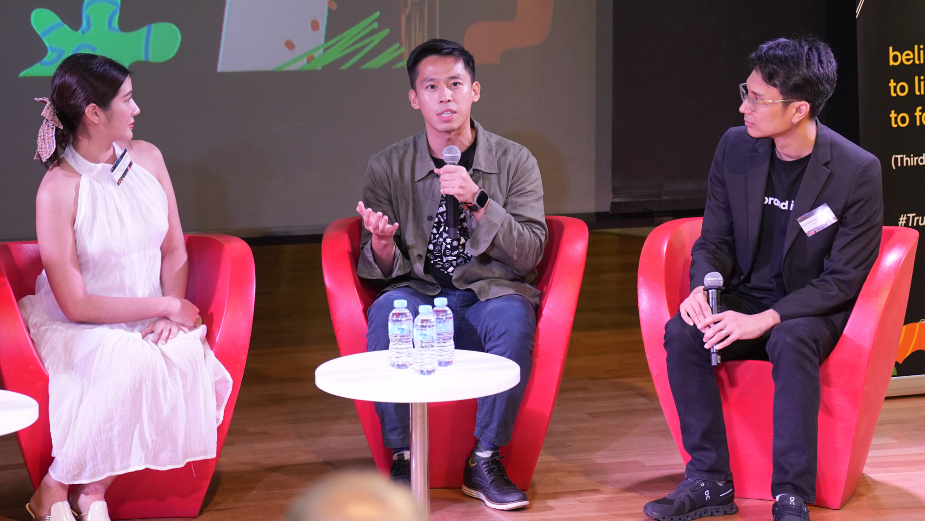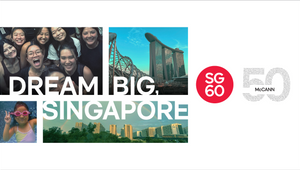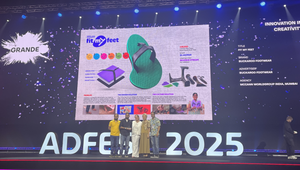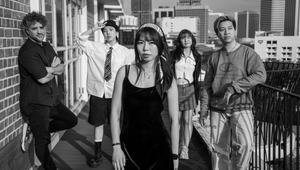
Untrusting Conspiracy Theorists? How Systemic Failures Have Impacted Thailand’s Youth

A desire to uncover real truths…
A deep sense of responsibility…
A tendency to bend reality…
A want to escape into solitude…
These insights into the zeitgeist of Thai gen z come from in-depth exploration, The Truth About Thai Youth, part of a larger multi-year study across 16 markets by McCann Worldgroup.
Underlined by an ultimate distrust in both institutions and generations before, today’s Thai youth are largely defined by their willingness to challenge conventions and demand change. Believing that they have the power to shape the future, they are asking brands to rise to meet them in order to become proactive partners in their mission for social change, truth-seeking, creative problem-solving, and personal exploration.
But with so much responsibility weighing on their shoulders, it seems that this has also come with a sense of fun to take the edge off. ‘Delulu is the solulu’ is a phrase that has captured this generation’s tendency to find comfort in beliefs that are not always logical. In fact, 66% of Thai gen z-ers admitted that it’s fun to believe in things that aren’t logical or scientific (slightly above the global average) and 30% identify as conspiracy theorists.
So, what does this culture of mistrust and escapism mean for marketers that want to connect with a young Thai audience? And how do the trends in Thailand compare with what’s going on elsewhere? Xea Kho, strategic planning director at McCann Worldgroup Thailand joins LBB’s Sunna Coleman to explore.
LBB> The research states that the majority of Thai youth have lost trust in institutions. What do you think led to this?
Xea> The Thai youth of today demand accountability. They tend to perceive the failures they’ve seen in education and poverty as largely down to the decisions of older generations. No wonder there’s a generational divide! After witnessing systemic failures, youth today are more likely to want to rely on themselves and take matters into their own hands.
LBB> How has this impacted and shaped brands’ marketing efforts? How can they position themselves as reliable and authentic?
Xea> Our research reveals that today’s youth are driving social change by harnessing their creative power in ways that challenge conventional solutions. They’re exploring new paths, contrasting sharply with the 'tried-and-tested' approaches of institutions they feel have failed them. So here’s the provocation for brands aiming to position themselves as authentic and reliable: How can we partner with the youth to unlock their creativity in support of causes that matter to both their brand and consumers?
LBB> According to the research, 30% of Thai gen z-ers identify as conspiracy theorists! Why do you think this is?
Xea> Today’s youth are highly sceptical and discerning – they don’t just scratch the surface, they dig deep. They’re not amateur detectives; they’re pros, driven by a lack of trust and a passion for uncovering hidden layers. Yes, it is rooted in lack of trust but their creative spirit allows it to also be fun. Whether it’s K-pop, anime, or current affairs, it’s fun for them to go down these rabbit holes and find conspiracies in everything they’re passionate about.
For example, young Thais love stirring conversations from celebrity breakups to meme origins and hidden messages in backmasked songs. Is Butterbear actually a real bear?!
LBB> How can brands responsibly navigate a marketing environment where misinformation and conspiracy theories are prevalent?
Xea> In today’s world, information is everywhere, and so is misinformation. We’re now questioning whether images and videos are real, thanks to (or blame) AI. Successful brands engage with culture, and that means having a point of view with what’s happening in the world. Hence, now more than ever, brands need to exercise the same level of discernment.
LBB> What strategies can brands use to appeal to Thai youth’s desire for deeper, more meaningful truths?
Xea> Whet their appetite for deeper levels of truths. Feed their appetite. Take them on a journey. Which leads to our second provocation: How can brands invite greater engagement by adding layers to their experiences?
LBB> The study shows that 74% of Thai youth believe they have the power to influence a global brand’s actions and behaviours for the better. How do you see this generation exercising this power?
Xea> The prominence of social media and the rise of new technology (AI, VR, etc) have exponentially shifted the power towards consumers – specifically among today’s vocal and empowered youth. The defining traits of this generation give us a glimpse of their potential:
- Creative Catalysts: Driven by their values, they strive for real change and will take action when no one else does.
- Depth Seekers: They possess a keen sense for detecting ‘BS’ and aren’t afraid to call it out, like exposing corporate greenwashing.
- Rational Thought Challengers: Religion, faith, and superstition are common themes as they go to the end of the earth to seek answers that will help them navigate a world of uncertainty.
- New Realm Explorers: They are creating their own worlds governed by their own identity, values, and rules. Instead of inviting them into your brand’s world, the real question is, how can brands gain permission to be invited to enter theirs?
LBB> How can brands act more like partners in helping gen z achieve their goals of a better future? What new strategies or creative solutions can they implement?
Xea> Thai gen z-ers are not as brand loyal as the older generations. They’re picky, experimental, and sceptical. They can see through inauthenticity. This goes back to a fundamental marketing principle: brands must stay true to their core ethos as authenticity follows from consistency. Do what you say. For gen z, actions speak louder than words. What values and interests overlap with your brand and audience? That sweet spot forges the partnership.
LBB> How does the latest research from Thailand compare to what you are seeing across other regions in Asia?
Xea> Thai youth are deeply committed to the issues they care about. They have a strong, vocal stance reflecting the core values that define them:
- 52% of Thai gen z-ers consider environmental issues to be the most important social cause, the highest globally, almost at par with Japan, followed by China.
- 69% of Thai gen z-ers believe they are personally responsible for reversing climate change, far exceeding India 39%, Japan 30%, and China 18%.
- Interestingly, taking the onus may have affected how Thais feel about their age. 31% feel older than their age compared to China (19%) India (17%), and Japan (12%).
They are distinguished by their unwavering commitment to finding deeper meaning in everything they encounter: 30% identify as conspiracy theorists, ranking highest in Asia followed by India at 20% and China at 9%.
Their belief systems are evolving in unexpected ways: 66% believe star signs can predict personality traits, tied with India, and followed by China at 52%.
Escapism has always been a part of youth culture, but for Thai gen z, it has taken on a new form: 79% view escapism as a solitary activity rather than a communal one. The same goes for China, India, and Japan where, on average, one out of three have the same sentiment.
LBB> With Thai youth ranking the highest globally in finding a virtual reality fantasy world appealing as a form of escape, what does this mean for brands and how can they engage without overstepping privacy boundaries?
Xea> With new tech like virtual reality, concerns about data privacy often come up. We’ve learned from social media just how valuable personal data can be. That’s why it’s important for brands to be invited into these virtual spaces. The question is: how do brands earn that trust? It’s all about proving their value.
Take NocNoc, for example, a leading home improvement platform in Thailand. They teamed up with Meta to let customers scan a QR code and step into an augmented reality where they could explore different room designs and even share them with friends. The experience was powered by AI, offering personalised recommendations to make shopping easier and more fun. When consumers see the benefit and willingly share their info, privacy concerns naturally diminish.
LBB> Which brands are currently doing well in resonating with Thai gen z and why?
Xea> Gen z is all about fun, and TikTok data shows that bold, funny brands are the ones really connecting with them. They want content that’s not only entertaining but also something they can share and talk about with others.
Even though they care about social issues, they express that through creativity – and for them, creativity is fun. 66% of them also say it’s fun to believe in things that aren’t always logical or scientific. Fun, then, is central to who they are.
In partnership with TCP, we captured this energy with the launch of Ready’s new sparkling energy drink. Using a music marketing strategy, we tapped into one of the largest youth tribes in the country, T-Pop fans, creating an experience they could express both on the ground and on social media. Value exchange doesn’t have to be serious and complex; it can be as simple yet meaningful as fun.
LBB> How does the latest research from Thailand compare to trends and insights from Western markets?
Xea> Thai gen z have their own perspective on truth, embracing multiple angles and accepting that truth can shift depending on the situation. In fact, nearly half of Thais believe truth is flexible – a sharp contrast to westerners who tend to prioritise a single unchanging truth (US 75%, UK 72%, Chile 77%, Peru 74%, France 68%).
Generally, Asia leads in influencers having more impact on their life choices than their parents have. This is driven by Thailand at 37%, ranking third behind India and UAE. Western countries including the US, Canada, UK, Spain, Chile, Spain, Germany lag behind at an average of 13%.
There is a deep shared sentiment of not being able to plan for the future due to uncertainty in the world today. This is common across the world, with 68% of gen z-ers feeling this way vs baby boomers that think otherwise at 47%.
73% of Thais feel they have enough time and space to express themselves creatively. Western countries like the US, Mexico, UK, and Germany are not too far too with an average of 62%.
Globally, gen z-ers hold brands to higher standards vs older generations. This is most pronounced among Thais where nine out of ten believe that brands should promote diversity, compared with 65% in the US and 76% in the UK.
LBB> How do you expect the marketing landscape to evolve in line with gen z demands over the next few years?
Xea> ‘Staying delulu is the solulu’ might seem like just another trend, but it actually reflects a core trait of gen z. While some may see them as the confused generation, they’re far from passive. In fact, they’re active participants in shaping culture. Brands will need to evolve by engaging with this generation in ways that feel more authentic, bold, and connected to their truth.
I believe the future of marketing will focus on brands becoming true partners in social change, truth-seeking, creative problem-solving, and personal exploration – traits that define gen z today. And just on the horizon is gen alpha, already creating their own language and identity. Skibidi. Rizz. Sigma. What’s next? Staying ahead means understanding that the marketing landscape will need to keep up as fast as the youth themselves.















